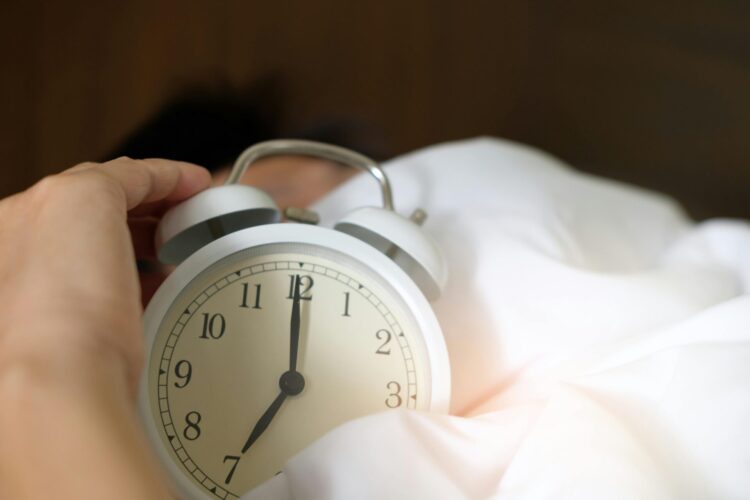How to Sleep While Stressed
Stress Management for Better Sleep
Stress management is key to a good night’s sleep. Lower your stress levels by implementing healthy day-to-day habits. In addition to maintaining a balanced diet and exercising throughout the week, you can alleviate stress through controlled breathing and relaxation techniques. It’s also crucial to balance your work and personal life and avoid internalizing stressors.
Importance of Sleep Hygiene
Practicing proper sleep hygiene can improve sleep quality and duration, leaving you more refreshed and better prepared to manage stress. Adopting healthy lifestyle practices helps prepare the body for restful sleep.
Key Strategies for Better Sleep
- Stick to a Sleep Schedule
Go to bed and wake up at the same time every day, even on weekends and while traveling. - Optimize Your Bedroom Environment
Create a relaxing atmosphere by keeping lights dim, reducing noise, and maintaining a comfortable temperature—ideally around 65 degrees. - Limit Screen Time Before Bed
Avoid electronics like smartphones and computers before bed as they emit blue light, which can interfere with sleep. - Cut Back on Stimulants
Refrain from consuming nicotine and caffeine close to bedtime as these stimulants may keep you awake. - Avoid Alcohol Before Sleep
Alcohol may cause sleep disturbances, despite its sedative properties. It can lead to fragmented sleep as your body processes the alcohol. - Exercise Regularly
Moderate morning or afternoon exercise can help you wind down and sleep better at night.
What to Do If You Can’t Sleep
If stress keeps you awake for more than 15 to 20 minutes, get out of bed and engage in a relaxing activity like reading or meditating. Avoid using your phone or watching the clock to prevent further stress.

Impact of Stress on Sleep Structure
Elevated stress levels can significantly impact the structure of sleep, affecting both the duration and quality of each sleep stage. Chronic stress may lead to less time spent in deep sleep and frequent interruptions during REM sleep, which is crucial for emotional regulation and memory.
The Vicious Cycle of Stress and Sleep
Although getting enough sleep is one of the most effective ways to reduce stress, it can often feel unattainable when stress itself disrupts sleep. This creates a vicious cycle where stress leads to poor sleep, and poor sleep worsens stress, making restful nights elusive.
Additional Stress-Relief Measures
In addition to sleep, regular exercise and maintaining a strong support network of friends and family can help relieve stress. However, achieving adequate sleep remains a key factor in stress management, making it essential to prioritize proper sleep hygiene and relaxation techniques.
References
National Sleep Foundation. (n.d.). Stress and insomnia. Sleep Foundation. https://www.sleepfoundation.org/insomnia/stress-and-insomnia#stress-and-the-body-1


